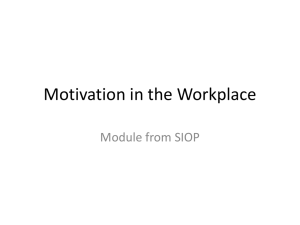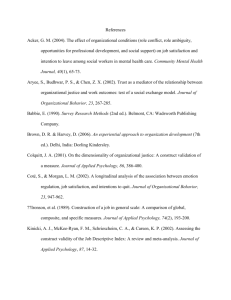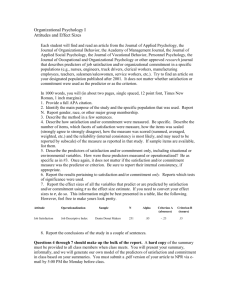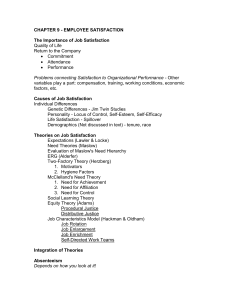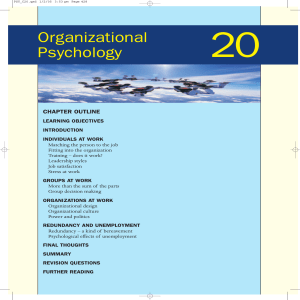research notes
advertisement
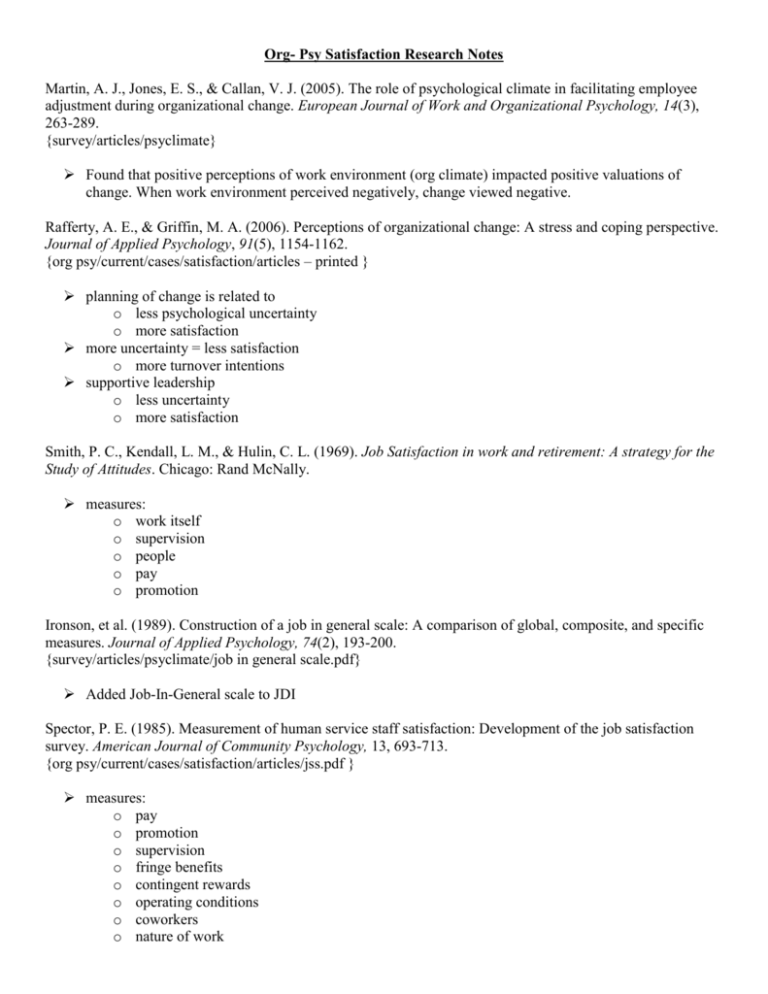
Org- Psy Satisfaction Research Notes
Martin, A. J., Jones, E. S., & Callan, V. J. (2005). The role of psychological climate in facilitating employee
adjustment during organizational change. European Journal of Work and Organizational Psychology, 14(3),
263-289.
{survey/articles/psyclimate}
Found that positive perceptions of work environment (org climate) impacted positive valuations of
change. When work environment perceived negatively, change viewed negative.
Rafferty, A. E., & Griffin, M. A. (2006). Perceptions of organizational change: A stress and coping perspective.
Journal of Applied Psychology, 91(5), 1154-1162.
{org psy/current/cases/satisfaction/articles – printed }
planning of change is related to
o less psychological uncertainty
o more satisfaction
more uncertainty = less satisfaction
o more turnover intentions
supportive leadership
o less uncertainty
o more satisfaction
Smith, P. C., Kendall, L. M., & Hulin, C. L. (1969). Job Satisfaction in work and retirement: A strategy for the
Study of Attitudes. Chicago: Rand McNally.
measures:
o work itself
o supervision
o people
o pay
o promotion
Ironson, et al. (1989). Construction of a job in general scale: A comparison of global, composite, and specific
measures. Journal of Applied Psychology, 74(2), 193-200.
{survey/articles/psyclimate/job in general scale.pdf}
Added Job-In-General scale to JDI
Spector, P. E. (1985). Measurement of human service staff satisfaction: Development of the job satisfaction
survey. American Journal of Community Psychology, 13, 693-713.
{org psy/current/cases/satisfaction/articles/jss.pdf }
measures:
o pay
o promotion
o supervision
o fringe benefits
o contingent rewards
o operating conditions
o coworkers
o nature of work
o commuication
o total satisfaction
Korsgaard, M. A., Sapienza, H. J., & Schweiger, D. M. (2002). Beaten before begun: The role of procedural
justice in planning change. Journal of Management, 28(4), 497-516.
{copied}
reactions to planning change depend upon perceptions of procedural justice
o intention to remain lowered when process of planning seen as unjust
o employee obligations lowered when unjust process
o trust in organization is increased when change plan is seen as just
Colquitt, J. A. (2001). On the dimensionality of organizational justice: A construct validation of a measure.
Journal of Applied Psychology, 86, 386-400.
Developed justice measure: 1 – to a small extent 5 – to a large extent
o procedural (7 items) “Have you been able to express your views and feelings during those
procedures?”
o distributive (4 items) “Is your (outcome) appropriate for the work you have completed?”
o interpersonal justice (4 items) “Has he/she [authority figure] treated you with respect?”
o informational justice (5 items) “Has [authority figure] explained the procedures thoroughly?”
**Get JDI? **
